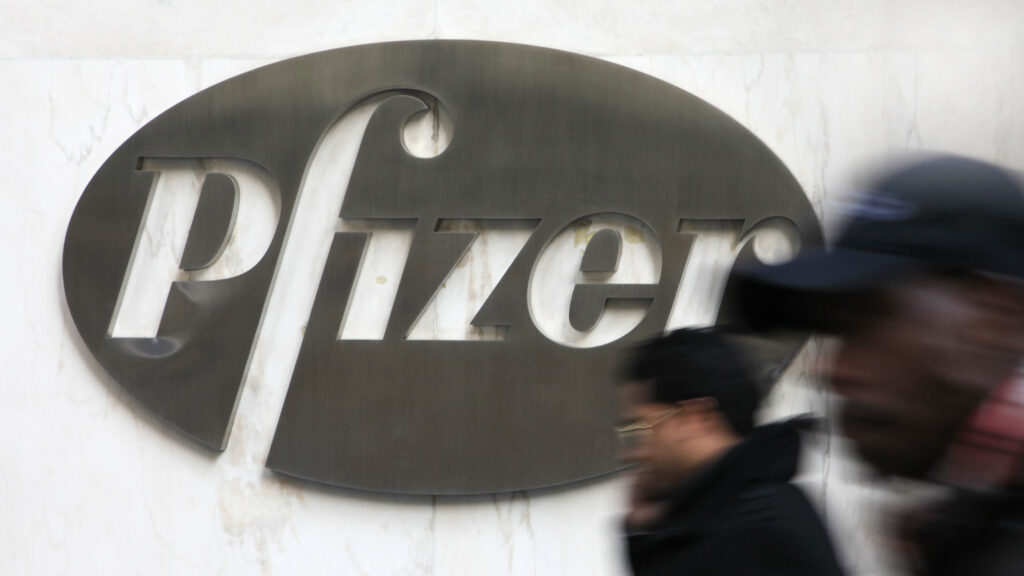The Food and Drug Administration approved a second vaccine to protect older adults against RSV on Wednesday, giving a green light to Pfizer’s Abrysvo for adults 60 and older.
Early in May the FDA approved the first ever vaccine against respiratory syncytial virus, or RSV, when it licensed GSK’s Arexvy.
“A vaccine to help prevent RSV had been an elusive public health goal for more than half a century. Today’s approval is a monumental step forward in delivering on Pfizer’s commitment to help alleviate the significant burden of RSV in higher-risk populations, which includes older adults,” Annaliesa Anderson, a Pfizer senior vice president and chief scientific officer for vaccine research and development, said in a statement.
Neither Pfizer’s vaccine nor GSK’s is currently available for use. The Centers for Disease Control and Prevention must recommend the vaccines before they can be sold. That is a two-step process that will begin when a CDC vaccine expert panel, the Advisory Committee on Immunization Practices, votes on whether to recommend these vaccines on June 21. If they do, CDC Director Rochelle Walensky will need to formally accept the recommendation. It is expected both vaccines will gain CDC recommendations.
RSV is a ubiquitous respiratory illness that in most people causes cold or flu-like symptoms. But in very young children and older adults, the virus can trigger more severe disease, and can, on occasion, cause death. It is estimated that in the United States, between 6,000 and 10,000 adults die from RSV infection every year, 60,000 to 160,000 end up being sick enough to require hospitalization, and between 900,000 to 1.4 million people require medical care.
A Phase 3 randomized controlled trial of the vaccine found it was effective at preventing lower respiratory tract illness — a more severe form of the disease — caused by RSV. The vaccine showed an efficacy of 66.7% in preventing lower respiratory tract illness that involved two or more symptoms; it was 85.7% effective in preventing illness involving three or more symptoms. The symptoms measured included cough, wheezing, sputum production, shortness of breath, and rapid breathing.
Infectious diseases experts who study RSV in older adults are excited by the imminent arrival of these vaccines. But they recognize that many older adults — and their primary care doctors — are unaware of the risks RSV infection poses to them.
“I live in a world where I think RSV is important for adults. I realize that the rest of the world doesn’t,” said Ann Falsey, a professor of medicine at the University of Rochester who has done groundbreaking work to chart the magnitude of RSV infection in this age group.
“Is it Covid? No. Is it a close second to flu? I think in many years, it is,” she told STAT. Falsey was involved in the clinical trial exploring the Pfizer vaccine’s efficacy and she has done unpaid consulting for the company and others working in the RSV vaccine sphere.
Though Pfizer applied for — and the FDA approved — a license for use of the vaccine in people 60 and older, it is not yet clear whether the CDC will recommend its use for the entire age group. Members of the ACIP’s adult RSV vaccine work group indicated at a meeting in February that they do not believe either the Pfizer or the GSK vaccines would be cost-effective in people aged 60 to 64.
Should the ACIP decline to recommend the vaccine for people 60 to 64, or issue what is known as a permissive recommendation for this age group — saying, in effect, these individuals should be able to get the vaccine if they and their doctors agree it would be worthwhile — insurance companies will not be required to cover the cost. Some may not — a fact that would likely deter some people from getting vaccinated.
Another issue that could affect uptake of these vaccines is concerns about Guillain-Barré syndrome. One person in a GSK trial and two in Pfizer trials developed GBS, a form of temporary paralysis, after receiving these vaccines.
A number of infections and some vaccinations have been associated with an increased incidence of GBS, which occurs at a rate of about 1.5 to 3 cases per year per 100,000 people aged 60 and older. Both manufacturers will conduct post-marketing surveillance to look for evidence of GBS cases among vaccinees.
The manufacturers are also conducting studies to see if these vaccines can be given at the same time as other vaccinations. A Pfizer-sponsored study that Falsey led found that when RSV and flu shots are concomitantly administered, the response to the flu vaccine is dampened — though the effect is less pronounced in people who received the higher potency flu shots recommended for older adults aged 65 and older.
It will also be important to determine if RSV vaccine can be given at the same time as Covid shots. While it’s not certain yet whether protection against RSV will require annual vaccination, it is possible older adults may be facing a future where they are advised to get flu, Covid, and RSV shots every fall. A Pfizer spokesperson said the company plans to study co-administration of RSV and Covid vaccines, but the work has not yet begun.


